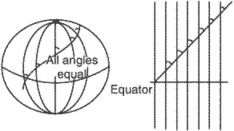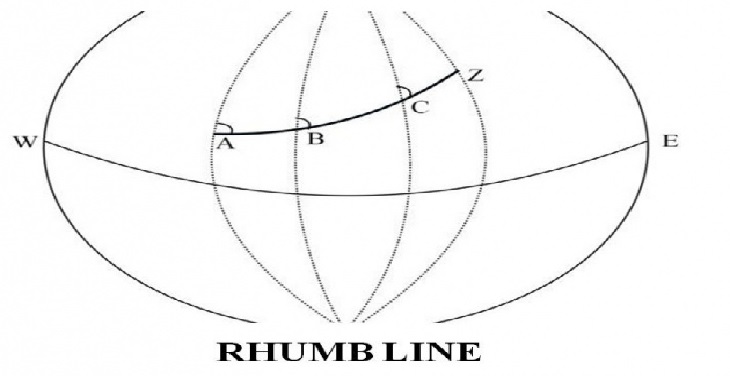A line, on the surface of the earth, which crosses the meridians at a constant angle is called a Rhumb Line (RL).
An extended Rhumb Line will run from the Equator towards the geographic Poles as a spiral. If the Rhumb Line is extended in the opposite direction from the Equator it will also form a spiral towards the other Pole. A Rhumb Line, passing the Equator on its way to the North Pole.
In other words we can understand rhumbline as :
A rhumb line is a curve that crosses each meridian at the same angle. This curve is also referred to as a loxodrome. Although a great circle is the shortest path, it is difficult to navigate because your bearing (or azimuth) continuously changes as you proceed.
Following a rhumb line covers more distance than following a geodesic, but it is easier to navigate. A rhumb line always spirals toward the poles, unless its azimuth is true east, west, north, or south, in which case the rhumb line closes on itself to form a parallel (small circle) or meridians.
All parallels, including the equator, are rhumb lines, since they cross all meridians at 90º. All meridians are both rhumb lines and great circle.


Leave a Comment